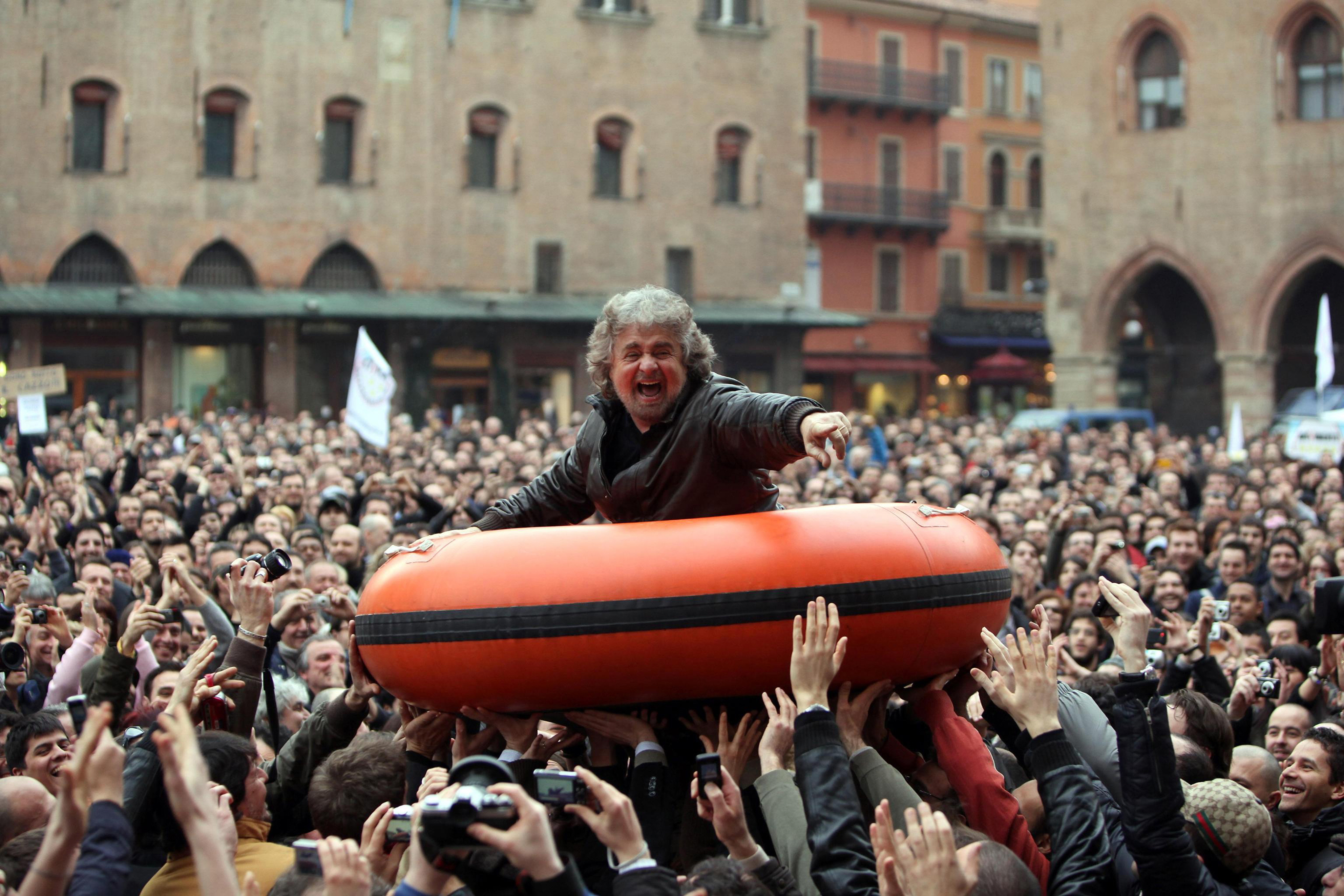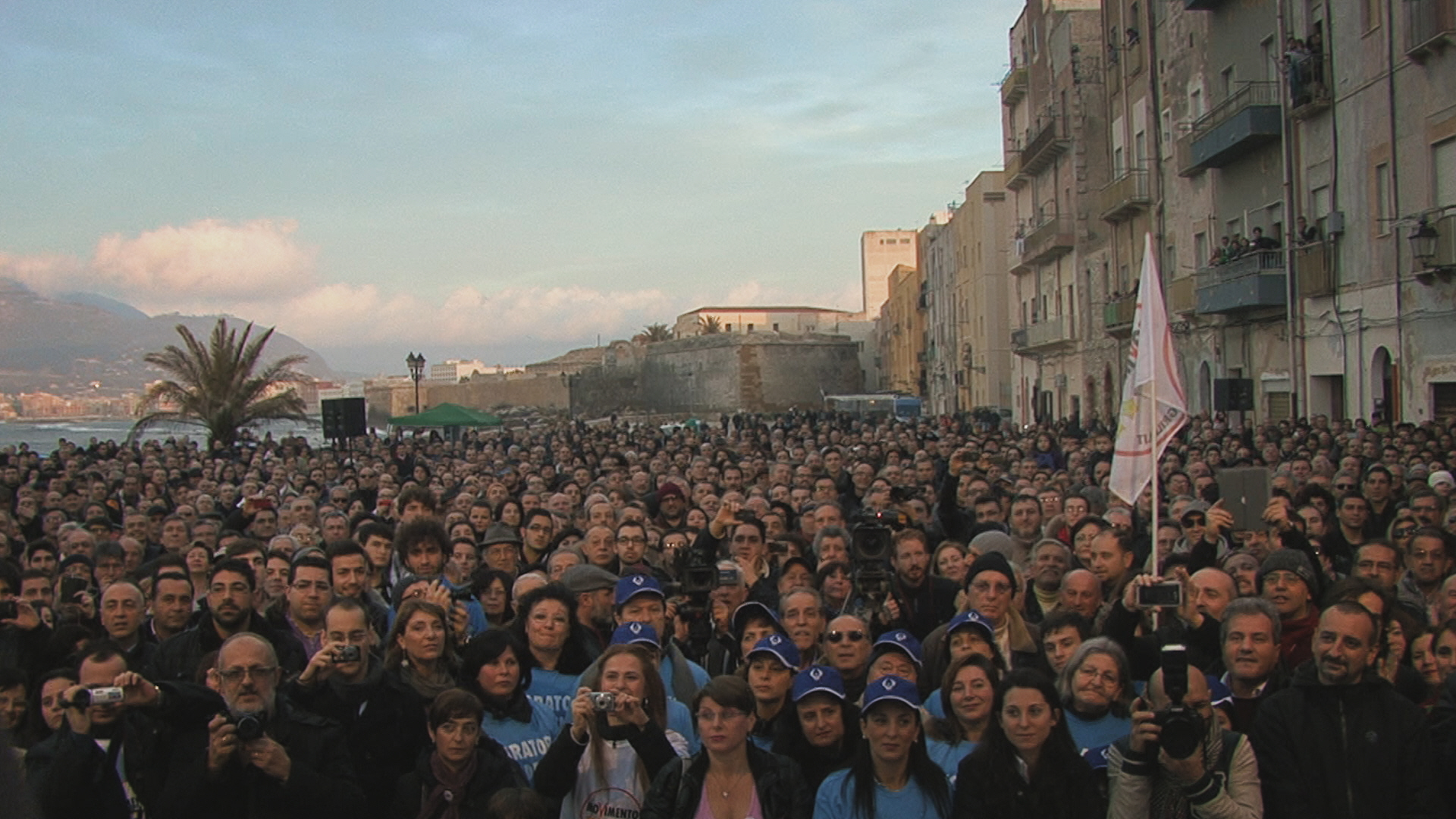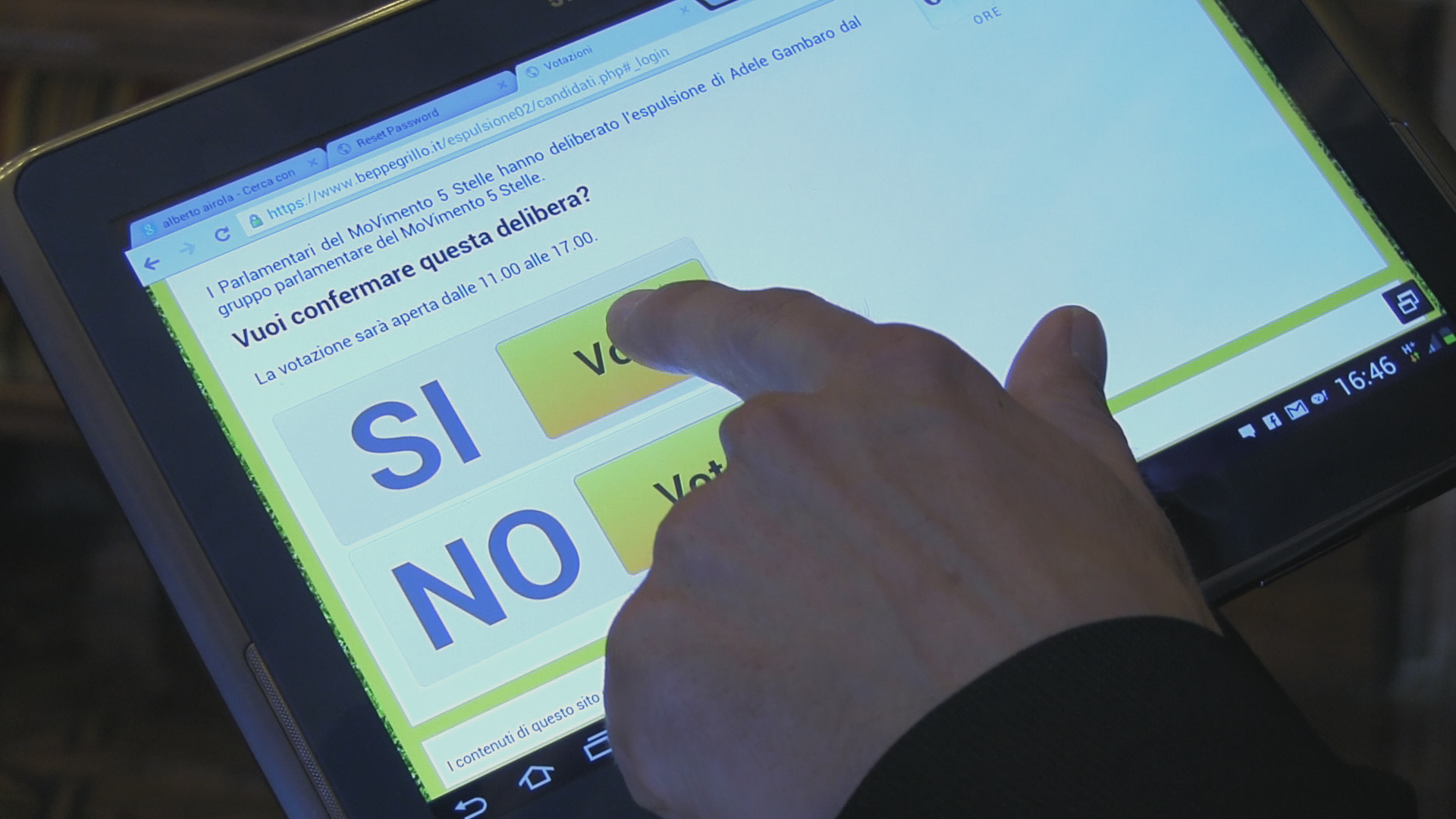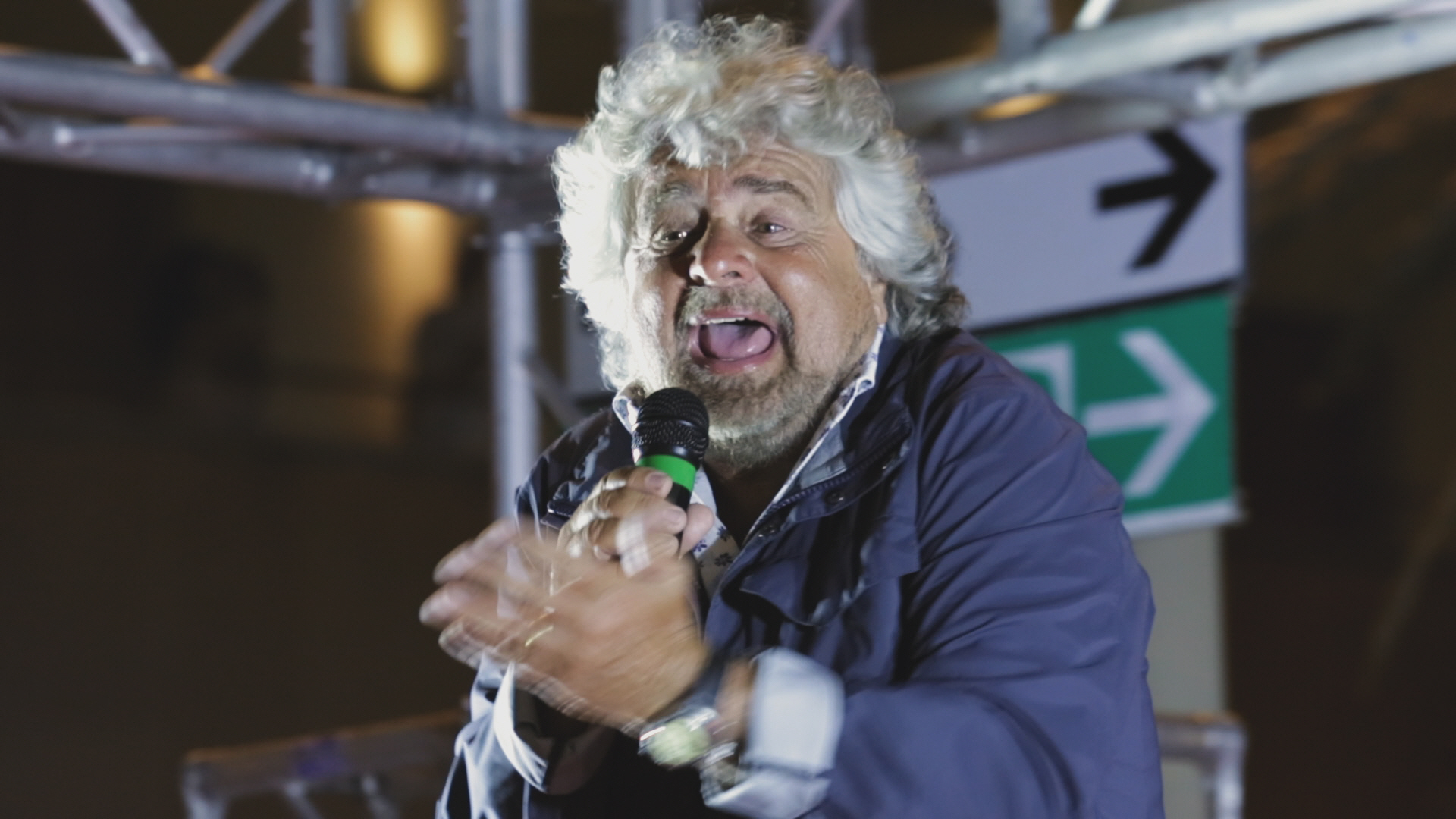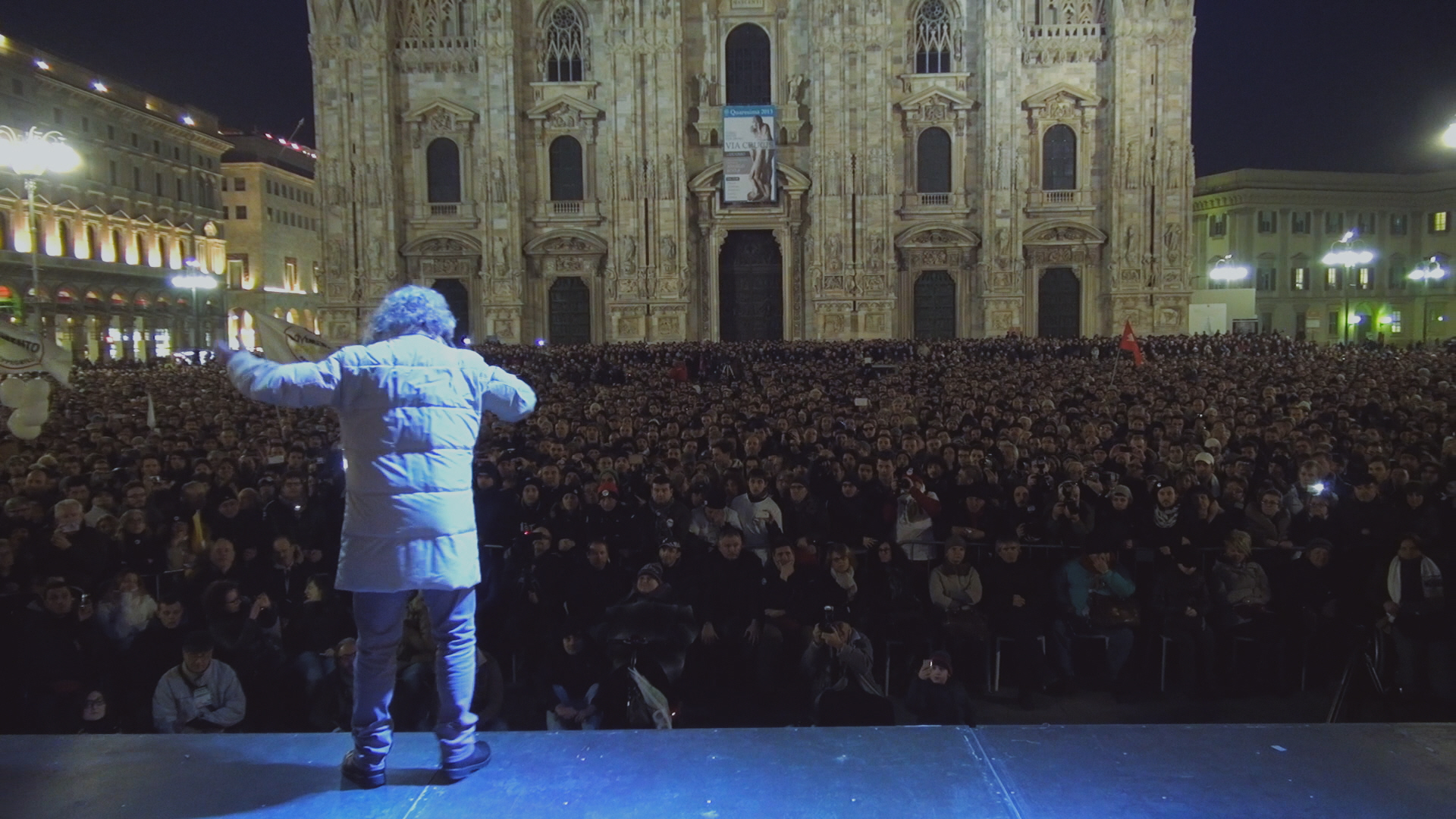TUTTI A CASA - Power to the People?
Lise Birk Pedersen
- Denmark, Finland, Norway
- 2016
- 90min
- DCP
- color
Asian Premiere
Synopsis
Italian comedian and political activist, Beppe Grillo. His popular protest movement, Movimento 5 Stelle, vows to send all politicians home and bring the people to power. They win a stunning 25% of the vote to become the single largest party in Italy, and send 163 ordinary people into Parliament. Through unique behind the scenes access, TUTTI A CASA depicts the on-going shift in balance between 'the people' and 'political power'
Review
It is in Athenian ancient Greece that the basis for democracy was established about 2,500 years ago, but it is in Italy that the concepts of democracy and of sovereignty of the people were developed and that the Italians have become fed up with the political corruption now. ‘Beppe’ Grillo, comedian turned politician famous for a political satirist came to sudden prominence in the political scene in the early 2000s, strongly criticizing, through his blog, economic crisis, corruption, regional disparity and isolation, and so on. 'Five Star Movement', a movement of citizens to involve themselves in politics was organized around him, and then the ordinary citizens who had never before experienced in politics formed an alternative political organization to run in the Italian general election in 2013. The film follows the story of four main characters who participate in the movement, since 'Five Star Movement' won 25.5% of votes, the second most popular one for the Chamber of Deputies at the 2013 general election. With ordinary jobs such as lawyer, engineer, photographer, etc., they drove out the established politicians and tried to create the world that they dreamed of, but the reality in the political arena is not easy for them. Starting with the principles of the realization of the direct democracy through Internet voting, and of the prohibition on alliance with existing political power, they collide with reality and are tormented with self-doubt and pessimism. And they are also starting to have internal strife against the authoritarian leadership of ‘Beppe’ Grillo. Watching that they are not free from the leader’s authority, though claiming to stand for the direct democracy and new politics, we should ask the questions. The slogan "power to all the people", is it possible to be realized in the real society? What do we need, to take a step forward from criticizing the establishment politicians? How much more do we have to debate, to experience conflicts, and to solve difficult problems, in order to realize the direct democracy. [Park Hye-mi]
Director
-

Lise Birk Pedersen
Putin’s Kiss (2012)Nastya’s Heart (2010)Dear God (2006) Man in the political arena is a subject that interests me, and it also inspired my earlier film 'Putin's Kiss'. But this time the conflict is more personal. My faith in politicians is in free fall. A large proportion of the European population feel the same way. The connection to the old parties is failing because the trust between politicians and people—that is the very foundation of our democracy is eroding, and we are reaching out desperately for alternatives. Tutti a Casa - Power to the people? is based on what I regard as one of the potentially greatest crises of our time. To me, in any film the arena is vital. I have chosen the political scene in Italy because the conflict there is extremely clear: power against impotence. The black and white nature of this arena combined with Beppe Grillo’s radical democratic experiment illuminates the complexity of the conflict. The feeling of helplessness is real and simple, but the nature of democracy is complex, and as the film shows, there are no easy solutions. Democracy - Demos Kratos - Democracy.What are the forces that come into in play when we distribute power between us? I am fascinated by the way human beings constantly create and maintain power structures and the way individuals manage the encounter with power. Silvio Berlusconi, Beppe Grillo, and Paola, Mario, Alberto and Luis (my four Movimento-protagonists) handle this encounter in their own ways, each of them influencing the course of history as he or she does so. Whether we bow to, share, confront or usurp power, our actions have consequences. My narrative is an ensemble one, because “the people” do not present with a single protagonist. The dynamics between the characters are what matter most, because the knock-on effects and cultures created by the actions of the people rub off on one another. This way corruption becomes political alienation that makes us vulnerable to populism, for example. This story is about how human beings act at the intersection of idealism, power and powerlessness. But it is also about the formation of the cultures and dynamics of power among the masses. Viewers will identify with the issues confronting democracy and the film will provoke discussion on the democratic crisis we currently face.
Credit
- ProducerLise Lense-Møller
- Cinematography Thomas Løberg, Riccardo Cremona
- Editor Anders Villadsen, Geir Ørnholt
- Music Karsten Fundal
- Sound Peter Albrechtsen, Bent Holm
Contribution & World Sales
Contribution & World Sales Autlook
E-Mail youn@autlookfilms.com
